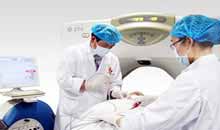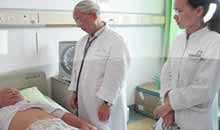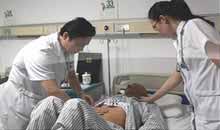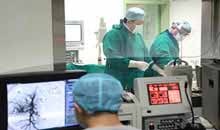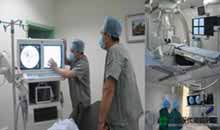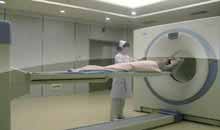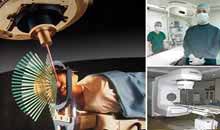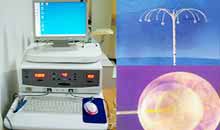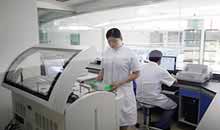
Colon cancer and rectal cancer are very common cancers occurred in the colon. Colorectal cancer which includes colon cancer and rectal cancer is the most common malignant tumor of digestive tract system. According to World Health Organization, every year there will be about 700,000 person died of colorectal caner, which means nearly 2,000 people died from this disease each day. What should colorectal cancer patients pay attention to? Experts from Modern Cancer Hospital Guangzhou give you the answers.
Q: Who are at high risk of colorectal cancer?
A: Generally, colorectal cancers are widely found in middle aged and elderly people. However, there are still some groups who are at high risk of developing this disease, including patients who have had breast cancer surgery, those with family history of colorectal cancer, and people who have history of anorectal diseases. Besides, people on a diet of high fat, high animal protein and high energy but low fiber are also easy to develop colorectal cancer.
Q: How to diagnose colorectal cancer?
A: Generally, there are six ways to diagnose colorectal cancer, including FOBT (fecal occult blood testing), DRE (digital rectal examination), endoscopy (sigmoidoscope & fibro-colonoscope), X-ray examination, B-mode ultrasonographic scanning and carcinoembryonic antigen (CEA) test. People who have family history of colorectal cancer and early symptoms are advised to go to hospital as soon as possible.
Q: What should I pay attention to after colorectal cancer treatment?
A: First and foremost, you should pay much attention to your diet. Generally, there is no special requirement for your diet after discharge. However, you should try to avoid smoked or pickled foods, moldy foods, fried foods and spicy foods and eat more foods with high fiber and low fat. You are reminded not to overeat.
Secondly, insist on regular exercise. You are suggested to have appropriate physical and mental exercise and avoid heavy work. You can also choose some light exercise such as jogging, stroll and Taichi boxing based on your previous habits and current tolerance, while strenuous exercise such as boxing, weightlifting must be avoided. You are encouraged to take part in more healthy social activities.
Q: How to prevent colorectal cancer?
A: The main way to prevent colorectal cancer is to pay attention to screening. Compared with the Westerners, the Easterners will develop this disease much earlier, so they are suggested to have colonoscopy once they are 40. If there is no colon polyp, they can have reexamination 5-10 years later. Otherwise, they should remove the polyps immediately and recheck in the next year until there is no polyp found. And then they can have reexamination every 2-3 years. It is very important to have an early detection because part of the adenomatous polyps is the signal of precancerous lesions. Having early detection and treatment of those polyps is an important mean to prevent colorectal cancer. Some other aspects should be paid attention to include:
1. Avoid long-term intake of high fat and calorie-rich foods. Foods rich of fibers are recommended to keep smooth defecation;
2. Eat more natural anticancer foods like fresh fruits, vegetables, garlic, tea, while at the same time maintain your supplement of Vitamin A, B12, C, D, E and folic acid;
3. Prevent precancerous lesions positively, especially for colon polyps. Patients with family history of adenomatous polyps should have surgery early. Great attention should be paid to the prevention of schistosomiasis and schistosomiasis granuloma;
4. That group with genetic risk factors or family history of colorectal cancer should have regular colonoscopy. People who have progressive weight-losing or habit change of bowel movement should do relevant tests as well.
If you have any questions, please contact us via online consultation, email or phone call. If you find our website useful, please follow our FaceBook and YouTube, health information will be updated regularly.



